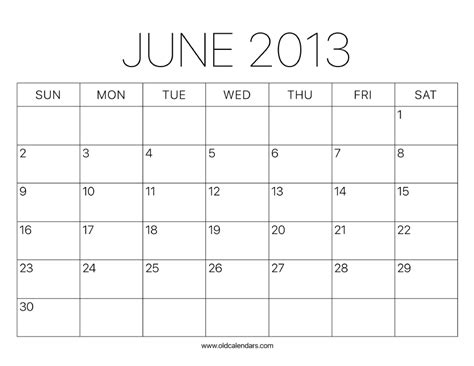Are you here because a specific date in June 2013 has popped into your head, and you just *have* to know what day of the week it was? Or perhaps you're piecing together a timeline, doing some historical digging, or simply caught in a wave of nostalgia for a simpler time? Trust me, I get it. I once spent an entire evening trying to pinpoint the exact date a rather ridiculous viral video from a decade ago first hit the internet, only to realize I needed to consult an old calendar. It's a specific kind of quest, and it often leads to fascinating discoveries.
While "calendar 2013 June printable" might sound like an oddly specific search in 2024, it’s a powerful key to unlocking forgotten moments, validating facts, or simply taking a trip down memory lane. You're not looking for a calendar to *use* now, but rather as a historical artifact, a data point, or a trigger for a long-lost memory. So, whether you're a seasoned history buff, a meticulous record-keeper, or just someone with a sudden pang of "what if?", you’re in the right place. We'll explore exactly why you might need this seemingly outdated artifact and how to get your hands on one.
Journey Back in Time: Reliving Personal Milestones

Sometimes, the past just calls to us. A specific date from over a decade ago might hold the key to a cherished memory, a personal triumph, or even a moment of reflection. Knowing the exact day of the week can add a vivid layer to your reminiscence.
- Scenario 1: That unforgettable summer vacation. You remember it started in June 2013, but what day was it? Knowing it was a Tuesday helps you recall the quiet drive, avoiding weekend traffic.
- Scenario 2: A significant family event. Was Grandma's 80th birthday party on a Saturday or Sunday? A quick check of the "calendar 2013 June printable" solidifies the memory.
- Scenario 3: The day you got a specific piece of news. Maybe it was a job offer, an acceptance letter, or an important family announcement. Pinpointing the day helps you recall the immediate aftermath.
- Scenario 4: Reflecting on a personal achievement. You finished a big project or reached a fitness goal in June 2013. Seeing the date on the calendar reinforces your accomplishment.
- Scenario 5: Remembering a first date or anniversary. "Our first date was June 15th, 2013... what day was that?" Ah, a Saturday! Perfect for a relaxed evening.
- Scenario 6: Documenting your child's early milestones. My son took his first steps sometime in mid-June 2013. I used an old calendar to narrow it down to a Thursday, just before a family gathering.
- Scenario 7: Just pure nostalgia. Sometimes, you just want to see what a decade ago looked like on paper. It's a simple, comforting link to the past.
The Detective's Log: Researching Historical Events & News
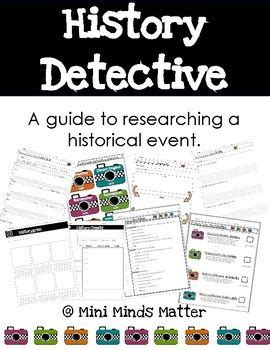
Beyond personal recollections, a "calendar 2013 June printable" becomes a valuable tool for anyone delving into the public record. What was happening globally, nationally, or even locally during that specific month?
- Scenario 1: Tracing major news events. You recall a specific headline dominating the news in June 2013. Using the calendar helps you align it with other developments of the week.
- Scenario 2: Following a sports season. Which day did your favorite team play that crucial game in June 2013? The calendar serves as a quick reference.
- Scenario 3: Cultural touchstones and pop culture. A movie premiere, a hit song release, or a popular TV show's season finale – often tied to specific dates.
- Scenario 4: Political developments. Tracking debates, legislative votes, or major policy announcements from that era.
- Scenario 5: Environmental events. Were there any significant weather events, natural disasters, or environmental news stories in June 2013?
- Scenario 6: Business and economic news. The calendar can help you line up financial reports or market shifts from that specific period.
- Scenario 7: Local community happenings. Perhaps a town festival, a school event, or a neighborhood milestone you want to recall or verify for a community history project.
Academic & Professional Precision: Project Timelines & Archival Needs
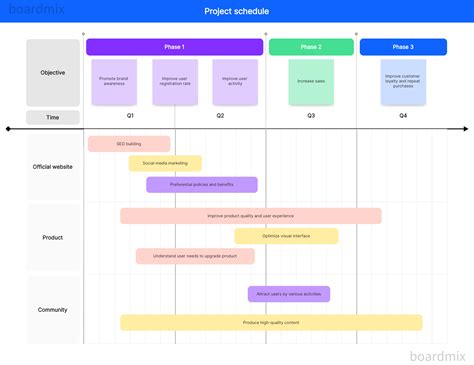
For researchers, students, or professionals, a specific "calendar 2013 June printable" is not just for nostalgia but for rigorous data validation. It helps build accurate timelines and verify historical records.
- Scenario 1: Academic research for a thesis. Pinpointing the exact start or end date of a research period or a specific historical event.
- Scenario 2: Legal documentation or auditing. Verifying dates for contracts, deadlines, or legal proceedings from over a decade ago.
- Scenario 3: Business project post-mortems. When did that critical phase of a project happen? A "calendar 2013 June printable" can confirm project milestones for historical analysis.
- Scenario 4: Media production timelines. For documentaries or historical pieces, verifying interview dates or event occurrences.
- Scenario 5: Journalism and fact-checking. Ensuring the dates cited in historical articles or reports are accurate down to the day.
- Scenario 6: Scientific data recording. If experiments or observations were made in June 2013, validating the exact day can be crucial for reproducibility.
- Scenario 7: Personal archives and digital clean-up. When organizing old digital files, you might find photos or documents timestamped June 2013, and the calendar helps contextualize them. I've used this to date old photos and align them with events I'd forgotten about!
Ancestral Tracing: Uncovering Family History & Genealogy

For those piecing together their family tree, precise dates are paramount. A "calendar 2013 June printable" can be a small but mighty piece of the puzzle for recent family history.
- Scenario 1: Confirming recent birth dates. A grandchild or family member born in June 2013? The calendar helps confirm the day of the week.
- Scenario 2: Marking anniversaries of passing. Remembering the exact date of a loved one's passing for memorial purposes.
- Scenario 3: Tracking family reunions or gatherings. When was that big family picnic in June 2013?
- Scenario 4: Verifying wedding anniversaries. If a relative got married in June 2013, the calendar helps confirm the weekday for their future celebrations.
- Scenario 5: Documenting a property transfer or family business event. Important for lineage records.
- Scenario 6: Adding context to family stories. "Great-aunt Mildred visited us in June 2013, just after the big storm." Knowing the storm date helps.
- Scenario 7: Creating a timeline for a family biography. Essential for placing events in chronological order.
Digital Archaeology: Recovering Lost Data & Deadlines

In our increasingly digital world, old calendars can unexpectedly help when you're digging through old files or trying to remember when something happened online.
- Scenario 1: Dating old email chains. When was that crucial email sent or received in June 2013?
- Scenario 2: Contextualizing old photos or videos. The timestamp on your digital camera says June 2013, but what day of the week was that incredible sunset?
- Scenario 3: Recovering forgotten project deadlines. You know you finished a particular digital project in June 2013; the calendar helps jog your memory of the exact submission day.
- Scenario 4: Verifying software updates or system changes. When did that big update roll out for your old computer or website in June 2013?
- Scenario 5: Tracking online course completions or webinars. When did you finish that online certification in June 2013?
- Scenario 6: Recalling online purchases. When did you order that specific item online back in June 2013?
- Scenario 7: Reconstructing a digital timeline of a specific event or campaign. I once had to figure out when a specific website campaign went live, and cross-referencing old emails with a 2013 calendar was key.
Just for Fun: Quirky Facts & "Where Were You?" Moments

Sometimes, the simplest reason is the most compelling: sheer curiosity! A "calendar 2013 June printable" can spark light-hearted conversations or just satisfy a random mental itch.
- Scenario 1: "What day was that?" trivia. Challenging friends or family with "What day of the week was June 21st, 2013?"
- Scenario 2: The "Where were you?" game. Pinpointing major global events and then asking "Where were you when [event] happened on [date from calendar]?"
- Scenario 3: Connecting with astrological data. What star sign was someone born under on a specific day in June 2013, and what does that mean?
- Scenario 4: Remembering silly personal anecdotes. "That ridiculous thing happened on June 5th, 2013... what day was that again?"
- Scenario 5: For creative writing prompts. Using a specific date from June 2013 as a starting point for a story or poem.
- Scenario 6: Just because it's interesting to look at. Appreciating the layout and design of an old calendar.
- Scenario 7: Satisfying a random brain itch. Sometimes, a specific date just pops into your head, and you can't rest until you know what day of the week it was!
Tips for Effectively Using Your 2013 June Calendar
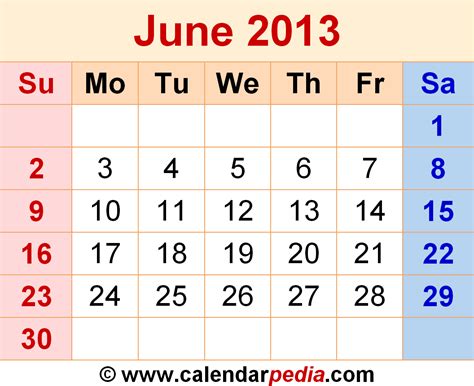
So, you've found or created your "calendar 2013 June printable." Now what? Here’s how to make the most of this blast from the past:
- Cross-Reference with Other Sources: Don't just rely on the calendar in isolation. If you're researching a historical event, cross-reference the date with news archives, official records, or reputable encyclopedias. This is crucial for verifying facts.
- Print It Out: For detailed annotation or if you're building a physical timeline, printing the calendar makes it much easier to mark up and integrate into your notes. I find this approach works best for really detailed historical projects.
- Annotate Liberally: Once you have your printable calendar, mark down all the relevant events, memories, or data points directly onto it. This transforms a simple calendar into a personal historical document.
- Consider Time Zones (for global events): If you're looking at international events, remember that the time and date in one part of the world might be different in another. A key event could have happened on one date locally but appeared on news feeds on another date due to time differences.
- Digitize Your Findings: Once you've marked up your printed calendar, take a photo or scan it. This creates a digital backup and makes it easy to share or integrate into digital projects.
Common Pitfalls: What to AVOID When Researching Past Dates
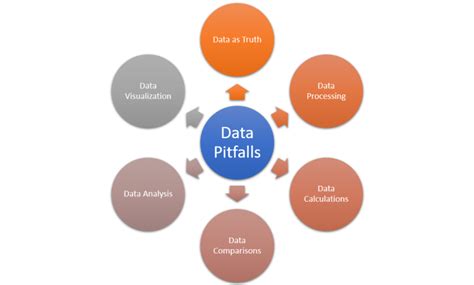
While it’s exciting to dig into the past, there are a few common traps to avoid to ensure your information is accurate and your efforts are well-spent.
- Relying on Unverified Sources: Just because a website offers a "calendar 2013 June printable" doesn't mean it's accurate. Stick to reputable sites, official archives, or known calendar generators. Don't be like me and trust the first sketchy link you find!
- Misinterpreting "Printable": Some search results might offer a calendar for *planning* 2013, not a historical one. Ensure the dates and days of the week match a real 2013 calendar.
- Ignoring Context: A date on a calendar is just a number without context. Always ask yourself *why* that date is important and what was happening around it.
- Getting Lost in the Rabbit Hole: While fascinating, it's easy to spend hours sifting through old news or photos once you open the door to 2013. Set a timer if you have other tasks!
- Assuming Memory is Perfect: Our memories can be surprisingly malleable. Use the calendar to *verify* recollections, rather than just assuming they are 100% accurate.
Go Forth and Uncover!
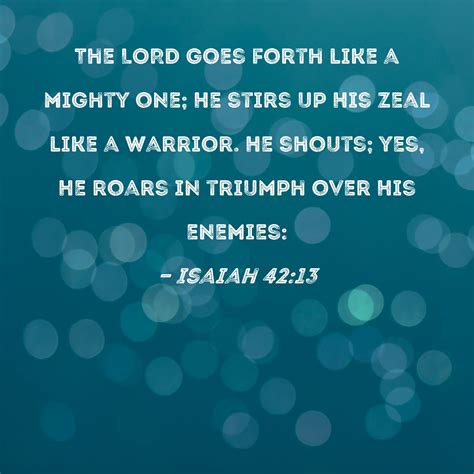
Finding a "calendar 2013 June printable" might seem like an unusual quest, but it’s often driven by a powerful human need for understanding, connection, and memory. Whether you’re a historian in the making, a sentimental soul, or just a curious mind, that little grid of days holds more stories than you might imagine. So go ahead, find that elusive calendar, mark those dates, and rediscover a piece of your past. Happy time-traveling!
